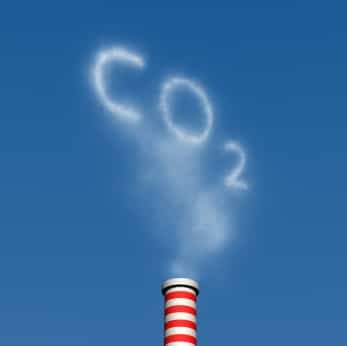A powerful industry lobby group called the the “Western Business Roundtable” is scheming to derail the Western Climate Initiative
You have to start somewhere. That was the attitude of a number of progressive US states and Canadian provinces when they formed the Western Climate Initiative (WCI), an effort to begin tackling carbon emissions in the face of endless inaction from their national governments.
The WCI aims to lay the foundation for a continental cap and trade system to limit greenhouse gases 15 percent below 2005 levels by 2020. The coalition currently has 11 member states and provinces representing 20% of the US, and 70% of the Canadian economies. They recently released their detailed recommendations for a regional cap and trade system that will be voted on for ratification by the member states and provinces.
But like ants to a picnic, you can bet some industry-funded front group is bound to show up whenever there is serious talk about reducing carbon emissions.
Introducing the “Western Business Roundtable” – a new group with membership including Peabody Coal, Shell Oil, and Western Fuels Association. And guess what? This group is about to release an “economic analysis” that will trash the recommendations of the WCI. Wonders never cease.
Desmog Blog has come into possession of an internal memo that Western Business Roundtable recently sent to their members, laying bare this strategy for smearing the work of the WCI. This document talks candidly about yet to be released findings:
Our report… will critically examine virtually all aspects of the WCI Recommendations, including its major assumptions, scenarios, findings,recommendations and economic modeling. Among the specific topics to be addressed in this analysis are these:
– Inefficiencies of a Unilateral Regional Plan
– Lack of measurable benefit in future climates according to United Nations-IPCC assumptions
– Implausibility of the WCI’s Electric Power Scenario
– Likely Actual Costs of WCI Initiative
– Macroeconomic Implications on GDP, Industry and Jobs
– Disproportionate Impact On Low-Income Families of Higher Prices Caused by WCI Recommendations
– Impacts on New Power Plant Construction and Energy Supply
– Bureaucratic Implications
Strange. This “detailed economic analysis” sounds a lot more like an industry-funded PR campaign… Their Executive Director of the, Britt Weygandt, helpfully tells their members:
“We will gladly provide you with a copy of this report as soon as it is completed so that you and your colleagues can benefit from its findings. Stay tuned!”
We at Desmog Blog will also stay tuned, but don’t expect any surprises when industry again apposes meaningful change around carbon. Instead, except more drivel about “carbon capture and storage” technology and of course, the further expansion of coal plants.
The important work of the Western Climate Initiative represents a significant step towards tackling carbon emissions and move towards a green economy. As their recommendations move toward ratification, expect the usual fossil-fueled push-back. It seems no good deed goes unpunished…
Subscribe to our newsletter
Stay up to date with DeSmog news and alerts






